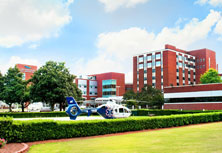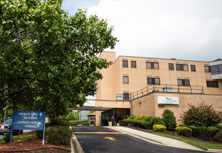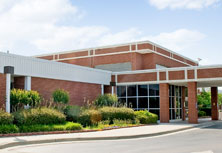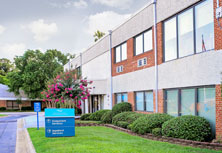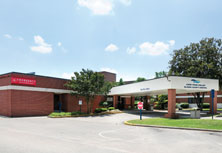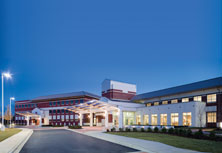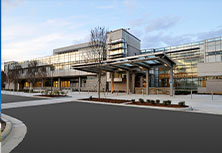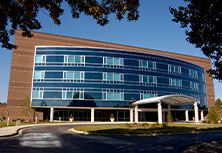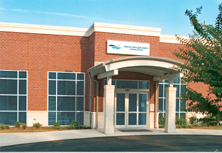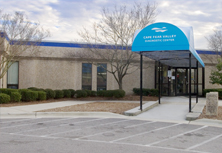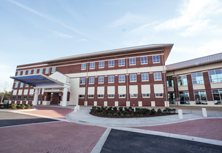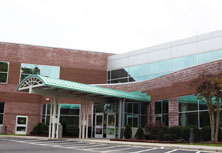Emergency Medicince Residency Program
Emergency Medicine Educational Resources
The Emergency Medicine Residency Program will supply the residents with educational resources to aid in the resident's learning environment. Residents will have access to basic texts and web-based exercises; current peer-reviewed literature that assists with evidence-based practice; knowledge and skills acquisition through didactic lectures, simulation training, and conferences; supervised rotations involving educationally-sound clinical and cognitive experiences; and opportunity for basic, translational, clinical, educational, or other research. In addition, the following resources will be made available:
- Residents will have electronic access to online journals and the CUSOM Medical Library. Access to core textbooks include Emergency Medicine: A Comprehensive Study Guide, Rosen's Emergency Medicine: Concepts and Clinical Practice, The Clinical Practice of Emergency Medicine, Robert Hedges: Clinical Procedures in Emergency Medicine, and Carol River's Written Board Review for Emergency Medicine.
- Skills acquisitions are fundamental to the educational mission. The Experiential Leaning and Assessment (CELA) offers opportunities for skills acquisition using simulation with standardized patients and state-of-the-art facilities. Hands-on skills sessions for suturing, knot-tying, and other skills are offered in laboratory and classroom settings. Learning activities in CELA are scheduled regularly and the residents also have 24/7 access for skills practice.
- Evolving current information from the peer-reviewed emergency medicine literature and information derived from presentations at national meetings are shared and discussed regularly at conferences. Articles are provided via electronic links to the CUSOM Medical Library and as copies for journal club and other activities.
- The basic and clinical sciences fundamental to emergency medicine are addressed through the weekly resident teaching conferences, grand rounds, clinical and education conferences, morbidity and mortality (M&M) conferences, and attending board rounds, as well as skills labs, simulation center exercises, and off-site training opportunities such as RRR sessions, EMS day, journal clubs and other activities.
- The Graduate Medical Education office provides additional faculty development activities for residents and faculty concerning duty hours and fatigue, teaching of residents, feedback techniques, helping the challenged learner and many other topics.
- Rotations are crafted for each year and residents are given graduated responsibilities with supervision as they progress. Competency-based milestones for every rotation for each of the four-years of training are found on the CFVMC website.
- Simulation Lab: The simulation lab at Cape Fear Valley is available to emergency medicine residents. Simulations available to residents include: SimMan®3G, SimMan® Essential, SimJunior®, SimBaby, SimNew®, SimChild3®, Human Patient Simulator (HPS®), Noelle® s550 Birthing Simulator, Newborn Hal®, and the Harvey® - The Cardiopulmonary Patient Simulator. In addition, the CFV Sim Lab has the Surgical Cut Suit and Open Surgical Simulation System (OS3) by Strategic Operations, PacerMan ®, FLS box trainers, and procedure trainers that cover every major procedure required for Emergency Medicine residency graduation. The CFV sim lab also has four state of the art 3D printers to print medical models for simulation.
- Residents are provided the Rosh Review, EMRAP, HIPPO EM, and EM Coach for ITE preparation. They are also given access to Core US to use during their introductory year of ED ultrasound plus the Surgical Science US MENTOR®.
